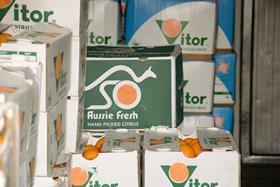
By 2020, 99 per cent of Australian goods exported to Indonesia will enjoy reduced or non-existent tariffs under the newly negotiated Indonesia-Australia Comprehensive Economic Partnership Agreement (IA-CEPA).
The agreement is yet to be signed but negotiations have ended, and a report of outcomes issued by the Australian government.
For fresh produce, citrus and vegetables will enjoy initial trade benefits, with:
- Mandarin tariffs cut to 10 per cent up to 7,500 tonnes annually, with long-term benefits of a reduction to zero over the next 20 years.
- Oranges and lemons enjoying duty-free access for 10,000 and 5,000 tonnes respectively in the first year, with a 5 per cent annual growth in volume for oranges, and a 2.5 per cent annual growth in volume for lemons thereafter.
- Potatoes will see reduced tariffs to 10 per cent at 10,000 tonnes per year for five years, with a reduction to 5 per cent for 12,500 tonnes after five years, and annual 2.5 per cent increase in volume thereafter.
- Carrot tariffs will be reduced to 10 per cent for 5,000 tonnes per year, decreasing to zero over 15 years with unlimited volumes permitted at the zero tariff.
A report from the Australian Department of Foreign Affairs and Trade said market access outcomes will provide increased certainty to Australian businesses supplying the Indonesian market. It also added that Indonesia’s commitments to the agreement are much stronger than in previous agreements.
For Indonesia, Australia will eliminate all remaining tariffs on Indonesian imports into Australia. The number of work and holiday visas will also increase from 1,000 to 4,100 which will help to assist regional Australia in meeting seasonal labour requirements.



